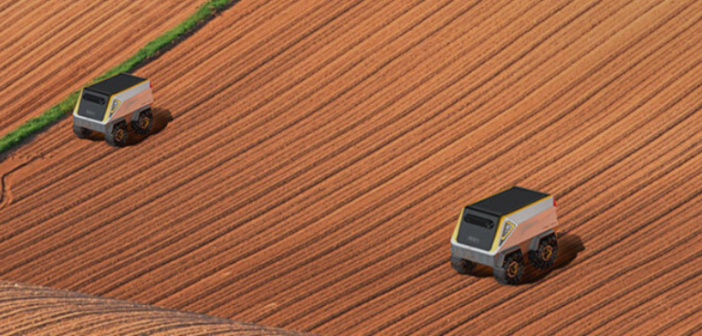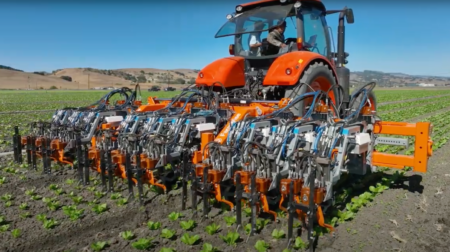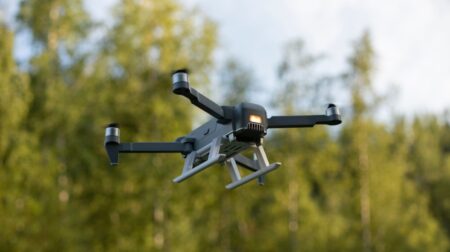UK start-up Antobot has secured £1.2m in their seed funding round to further develop affordable robotics for sustainable agriculture.
Founded by embedded controls and robotics professionals, Antobot is developing vertically-integrated robotics AI solutions optimised for agriculture. The start-up said it aims to increase efficiency and sustainability whilst maintaining accessibility and affordability.
Antobot’s first product line is its fully integrated automotive-grade universal Robot Control Unit (uRCU). Once requiring multiple separate modules, the uRCU’s design combines the core hardware and advanced software for agri-robotic applications in one compact single unit.
“The integrated design makes the uRCU smaller, more reliable and affordable than other existing solutions, and the full-stack AI also confers performance benefits with its universal, configurable design that can adapt to different farmer needs” said Howard Wu, Antobot CEO.
This latest funding, led by automotive electronics solutions provider in China, Intron Technology Holdings, will enable Antobot to develop various full applications using its modular platform, starting with its scouting robot Insight.
Initially focusing on the UK fruit sector, Insight travels autonomously through the farm and, using artificial intelligence, gathers accurate, timely and rich data for deeper insight into crop yield, profile, and pest / disease management.
According to Antobot, unlike manual scouting or scouting using large heavy machinery, Insight is powered by renewable energy and does not require any labour. Working with a selection of partner farms in England, Insight will be trialled in UK fields this summer.
Marc Jones, Antobot business director, added:“The development of Insight has been directly informed by the experiences of our partner fruit-growers in the UK – their concerns over achieving the NFU’s 2040 net zero goal and the loss of agri-labour.
“Insight will provide accurate yield forecasts, real-time crop management and digitisation of the supply chain using this early growth-stage data, which can give growers greater weight in contract negotiations, decrease avoidable food waste and enable more efficient use of limited labour.”
The team expects to have products in the market-place by 2022.








